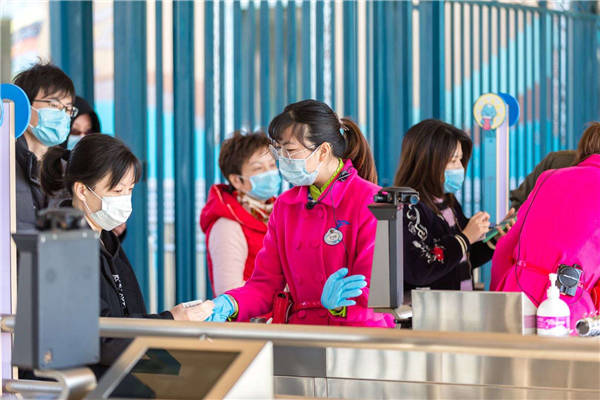Theme parks ride again


Authorities of Fantawild says that their theme parks have also suffered a loss of income from tickets, dining and shopping during the closure, and they have had to cancel activities like lantern shows and temple fairs planned for the Spring Festival holiday. It will need multiple parties, including theme parks and local governments, to work together to help restore the market.
Hangzhou's Songcheng Park, which is owned by Songcheng Group has created several new performances, of different styles, during its closure in readiness for the reopening. It was planned to reopen on April 3 but had to postpone it due to the local government's policy about prevention of the further spread of COVID-19.
The group claims they're one of the first companies in the tourism industry that announce that they will not reduce staff or salaries in the wake of the COVID-19 outbreak.
"Chinese theme parks enjoy a small peak of tourists during the Tomb Sweeping Festival holiday," says Zhan Dongmei, an associate research fellow from China Tourism Academy.
She attributes it to several reasons.
The local governments across China are supporting the tourism industry with preferential policies, theme parks are offering ticket discounts and taking strict measures to ensure tourists' safety, and, domestically, China is now in the final stages of the COVID-19 epidemic.
"Theme parks are popular among couples with children and young people. The insiders are confident about the revival of theme parks, judging by the current situation that many are already open again. Also, Chinese visitors are willing to go out and enjoy themselves with families," she says.
"Chinese tourists will probably focus more on short trips throughout this year, and theme parks should adjust their marketing strategies in accordance with that."

































